The Federal Election Campaign Act of 1971 (FECA) marks a pivotal moment in American campaign finance regulation. Enacted to address concerns about transparency and fairness in political campaigns, the FECA introduced crucial provisions that shaped the landscape of election financing. One of its primary goals was to establish disclosure requirements for contributions by individuals, political parties, and political action committees (PACs).
Key Takeaways:
- Establishment of Financial Regulations: The Act set guidelines for campaign financing, including limits on individual contributions to candidates and political committees.
- Introduction of Transparency Measures: It mandated detailed reporting of campaign contributions and expenditures, aiming to bring transparency to the electoral process.
- Creation of the Federal Election Commission (FEC): The FEC was established to enforce the Act’s provisions, overseeing compliance with campaign finance laws.
Table of Contents
- The Federal Election Campaign Act of 1971
- Federal Election Campaign Act
- What is a Campaign Finance Reform
- Campaign Finance Laws
- Federal Election Campaign Act of 1971 (FECA)
- Conclusion
- Frequently Asked Questions
The Federal Election Campaign Act of 1971
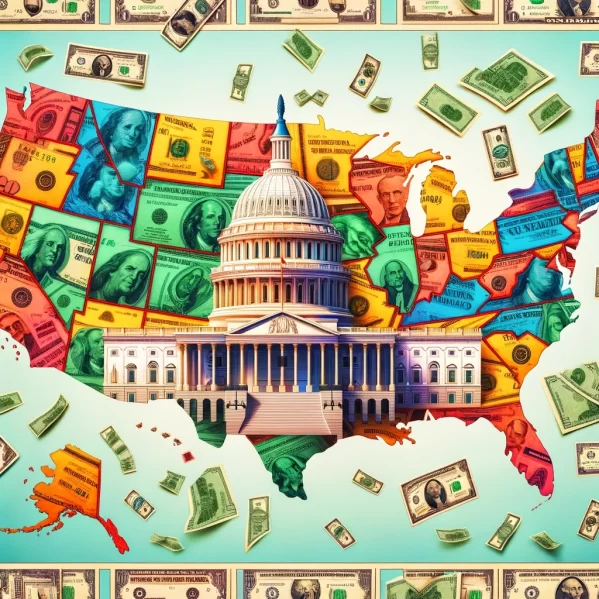
The Federal Election Campaign Act of 1971, also known as FECA, was a significant step in regulating campaign finance in the United States. It established comprehensive disclosure requirements for federal political campaigns and put limits on contributions to candidates and political parties.
Federal Election Campaign Act
Federal Election Commission (FEC)
One of the key aspects of FECA was the creation of the Federal Election Commission (FEC). The FEC oversees and enforces campaign finance laws and Political Action Committees (PACs). They play a crucial role under the Federal Election Campaign Act.
PACs
PACs which are organizations that raise money to support or oppose:
- Political Candidates
- Ballot Initiatives
- Legislation
The FECA set specific rules for PACs, such as limits on how much money they can contribute to candidates and parties.
These restrictions aim to prevent wealthy individuals or corporations from exerting undue influence over elections. In 2010, the Supreme Court made a landmark decision in Citizens United v. Federal Election Commission that significantly impacted campaign finance regulations.
What is a Campaign Finance Reform
Campaign finance reform refers to the efforts made to regulate the way money is raised and spent in political campaigns. It aims to address issues such as transparency, fairness, and reducing the influence of money in politics.
The Federal Election Campaign Act of 1971 (FECA)
The Federal Election Campaign Act of 1971 (FECA) was a significant step toward establishing regulations for campaign finance in the United States. One key aspect of campaign finance reform is implementing limits on contributions from individuals, political action committees (PACs), and political parties.
Wealthy Donors or Special Interest Groups
These limits are meant to prevent wealthy donors or special interest groups from having undue influence over elections by making excessively large donations. The FECA introduced these restrictions as part of its provisions, which were later amended in 1974 to further refine and strengthen these limits.
In addition to contribution limits, the FECA also established public disclosure requirements for candidates and committees involved in federal elections. This means that they are required to report detailed information about their campaign finances, including sources of funding and how the money is being spent.
Campaign Finance Laws
Campaign finance laws play a crucial role in shaping the landscape of political campaigns in the United States. These laws govern how political campaigns raise and spend money to influence elections at various levels, from local to federal offices. The Federal Election Campaign Act of 1971 (FECA) stands out as a cornerstone legislation that established comprehensive regulations for campaign finance.
Contributions by Individuals to Political Campaigns
Under the FECA, limits on contributions by individuals to political campaigns were set to prevent wealthy donors from unduly influencing election outcomes. These contribution limits aimed to level the playing field and ensure fair competition among candidates vying for federal office.
Additionally, the law regulating campaign finance introduced public disclosure requirements, mandating transparency in financial transactions related to political campaigns. This transparency provision aimed to enhance accountability and foster trust between elected officials and constituents.
Citizens United v. Federal Election Commission (2010).
One significant development in campaign finance law came with the Supreme Court’s landmark decision in Citizens United v. Federal Election Commission (2010). This ruling allowed corporations and unions to make independent expenditures on behalf of candidates, effectively ushering in a new era of unlimited corporate spending in politics.
The decision sparked debate over the influence of money in politics and raised concerns about potential corruption stemming from large-scale independent spending by entities outside traditional political action committees (PACs) or individual donors. Overall, campaign finance laws continue to evolve as U.S. lawmakers grapple with balancing free speech rights and combating corruption in electoral processes.
The McCain-Feingold Act
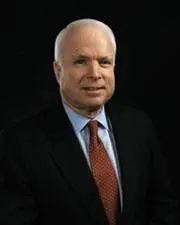
Senator John McCain co-sponsor of the McCain-Feingold Act
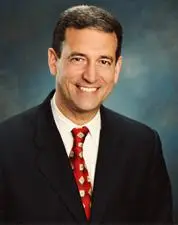
Senator Russell Feingold co-sponsor of the McCain-Feingold Act
The Bipartisan Campaign Reform Act of 2002 (also known as the McCain-Feingold Act) imposed further restrictions on contributions and expenditures by individuals, political parties, and PACs. These ongoing legislative efforts underscore the enduring importance of upholding transparency, accountability, and fairness in financing political campaigns within the framework established by the Federal Election Campaign Act of 1971.
By increasing transparency, these disclosure rules aim to provide voters with a clearer understanding of who is supporting a particular candidate or cause. This aspect of the FECA has been instrumental in promoting accountability and integrity in the electoral process.
Super PACs
The ruling allowed corporations and unions to make independent expenditures on behalf of political candidates, leading to an increase in independent spending on campaigns. This decision sparked debates about the role of money in politics and prompted calls for reform, culminating in the Bipartisan Campaign Reform Act to address some of these concerns through further amendments to existing laws like FECA.
The Tillman Act of 1907
In the realm of campaign finance reform, a pivotal moment came in 1907 with the enactment of the Tillman Act. This landmark piece of legislation marked the first federal law regulating contributions to political campaigns.
Senator Benjamin Tillman
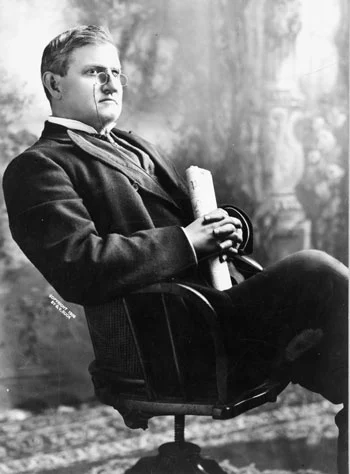
Tillman a Democrat from South Carolina. He was once censured for fistfighting on the Senate floor.
Named after Senator Benjamin Tillman, the act prohibited corporations from making direct contributions to federal candidates. The primary aim was to address concerns over corporate influence in elections and prevent potential corruption stemming from large corporate donations.
The Tillman Act laid the foundation for future campaign finance laws in the United States by establishing restrictions on financial contributions from entities such as corporations and labor unions. This early attempt at limiting outside influence on federal elections set a precedent for transparency and accountability within the political landscape.
However, it is important to note that the act did not include any limits on contributions by individuals or political parties at that time. Over the years, the Tillman Act has been subject to scrutiny and legal challenges, particularly concerning its scope and effectiveness in curbing undue influence in political campaigns.
Special Interest Influence
In subsequent rulings by the Supreme Court and legislative amendments, such as those introduced through the Federal Election Campaign Act of 1971 and its 1974 amendments, further refinements were made to campaign finance regulations. These ongoing efforts reflect a continuous dialogue around balancing free speech rights with maintaining fair electoral processes without undue corporate or special interest influence.
The Publicity Act of 1910, as amended in 1911
The Publicity Act of 1910 marked a significant milestone in the evolution of campaign finance regulation in the United States. This act, which was later amended in 1911, aimed to bring more transparency and accountability to political campaign funding.
Sources of Funding
It required political parties and candidates to disclose their sources of funding and expenditures, providing the public with valuable information about who was financing political campaigns. By imposing disclosure requirements, the Publicity Act sought to curb corruption and undue influence in the electoral process.
Disclosure Requirements
The amendments made in 1911 further strengthened the disclosure requirements established by the Publicity Act of 1910. These amendments clarified reporting guidelines for political parties and candidates, ensuring that they accurately disclosed their financial activities related to campaigning.
The increased transparency provided by these amendments helped voters make more informed decisions by shedding light on the financial backers behind various political campaigns. The Publicity Act of 1910, along with its subsequent amendments in 1911, laid a foundation for future campaign finance laws in the United States.
Regulating Campaign Financing
While these early regulations were relatively modest compared to later reforms such as the Federal Election Campaign Act of 1971 and the Bipartisan Campaign Reform Act of 2002, they represented an essential first step towards regulating campaign financing and promoting public disclosure. The principles established by the Publicity Act continue to influence modern campaign finance laws and efforts to ensure transparency in political fundraising activities.
The Federal Corrupt Practices Act of 1925
The Federal Corrupt Practices Act of 1925 was a significant piece of legislation aimed at curbing corruption in political campaigns. This act focused on regulating the financial aspects of campaigning, including contributions and expenditures.
Limits on Contributions
It required candidates to disclose their campaign finances, providing transparency to the public and helping prevent undue influence from wealthy donors. One key provision of the Federal Corrupt Practices Act of 1925 was the establishment of limits on contributions to political campaigns.
By placing caps on how much individuals and entities could donate, this act sought to prevent the buying of political influence through large sums of money. These limits aimed to level the playing field in elections and ensure that candidates were not beholden to a small group of wealthy donors.
Independent Spending in Campaigns
In addition to contribution limits, the Federal Corrupt Practices Act of 1925 also addressed independent spending in campaigns. Independent expenditures are funds spent by individuals or groups that are not coordinated with a candidate’s campaign.
This act set regulations on such spending to prevent outside forces from exerting undue influence on elections. By requiring transparency and accountability in independent expenditures, this legislation aimed to uphold the integrity of the electoral process and protect it from external manipulation.
Hatch Act of 1939
The Hatch Act of 1939 was a significant development in the history of campaign finance regulation in the United States. This federal law aimed to prevent federal employees from engaging in certain political activities that could influence elections. It prohibited federal employees from engaging in partisan political activities, such as fundraising for political campaigns or running for public office.
The Hatch Act sought to ensure that government employees remained impartial and did not use their positions to sway election outcomes. One of the key aspects of the Hatch Act was its restriction on federal employees’ involvement in political campaigns.
Integrity of The Civil Service
This meant that civil servants, including those working in government agencies, were limited in their ability to actively participate in partisan political activities. By imposing these restrictions, the Hatch Act aimed to maintain the integrity of the civil service and prevent conflicts of interest that could arise from federal employees engaging in overtly political actions.
The Hatch Act has undergone various amendments over the years to adapt to changing political landscapes and legal interpretations. In recent times, there have been debates about how modern campaign finance laws intersect with the principles outlined in the original Hatch Act.
Questions Raised
The Supreme Court’s decisions, such as Citizens United v Federal Election Commission (2010), have further complicated the landscape by allowing for increased independent spending by individuals, PACs (political action committees), and other entities.
These developments have raised questions about how effectively laws like the Hatch Act can regulate campaign finance practices while upholding free speech rights and transparency requirements.
1947 the Taft-Hartley Act
The Taft-Hartley Act of 1947 played a significant role in shaping campaign finance regulations in the United States. This act was primarily known for its provisions related to labor unions, but it also included important restrictions on political activities.
Prohibited Labor Unions
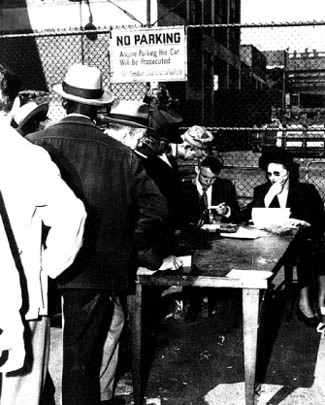
One key aspect of the Taft-Hartley Act was that it prohibited labor unions from making contributions or expenditures in federal elections. This marked a shift towards more stringent regulations on campaign finance and set the stage for future reforms.
In the realm of political campaigns, the Taft-Hartley Act’s provisions regarding political contributions aimed to curb potential undue influence and corruption. By restricting certain entities, such as labor unions, from directly contributing to federal campaigns, the act sought to promote fairness and transparency in elections.
Flow of Money
The limitations imposed by the Taft-Hartley Act were part of a broader effort to regulate the flow of money in politics and prevent special interests from exerting disproportionate influence on the electoral process. The Taft-Hartley Act’s impact on campaign finance paved the way for further legislative developments, including the Federal Election Campaign Act of 1971 (FECA) and its subsequent amendments.
These laws were built upon the foundation laid by earlier acts such as Taft-Hartley to establish more comprehensive regulations governing political fundraising and spending.
The evolution of campaign finance laws reflects an ongoing effort to balance protecting free speech rights and safeguarding the integrity of elections. Through those measures like disclosure requirements, limits on contributions, and oversight by bodies like the Federal Election Commission (FEC).
Federal Election Campaign Act of 1971 (FECA)
The journey through the intricacies and historical evolution of campaign finance laws in the United States culminated in the Federal Election Campaign Act of 1971 (FECA). From the early days of The Tillman Act of 1907 to the landmark Supreme Court case Citizens United v. Federal Election Commission in 2010, our nation’s approach to regulating political campaigns has undergone significant transformations.
The FECA, with its establishment of disclosure requirements, limits on contributions, and creation of the Federal Election Commission (FEC), represents a pivotal moment in shaping modern campaign finance regulations.
Conclusion
One cannot overlook the impact that independent spending and contributions by individuals, political parties, and Political Action Committees (PACs) have had on the electoral process. The enactment of FECA brought about much-needed transparency to political campaign funding, ensuring that citizens are informed about who is financing their candidates.
While challenges persist, such as those posed by the Bipartisan Campaign Reform Act and ongoing legal battles over contribution limits, it is evident that progress has been made toward promoting fairness and accountability in our electoral system. As we reflect on the significance of FECA and its role in shaping American democracy, there is a sense of optimism for the future.
Despite the complexities and controversies surrounding campaign finance laws, one cannot deny their crucial role in upholding democratic values. By staying vigilant about enforcing these laws and remaining committed to fostering a political environment built on integrity and transparency, we can ensure that our electoral process continues to evolve in a manner that serves the best interests of all citizens.
Frequently Asked Questions
What is the Federal Election Campaign Act of 1971?
The Federal Election Campaign Act (FECA) of 1971 is a significant law regulating campaign finance in the U.S., introducing requirements for disclosure of contributions and spending, and setting limits on donations.
Why was the FECA enacted?
FECA was enacted to increase transparency in campaign finance, prevent corruption, and ensure fairer elections by regulating the flow of money in political campaigns.
What role does the Federal Election Commission (FEC) play?
The FEC was established by FECA to oversee and enforce campaign finance laws, ensuring compliance and transparency in federal elections.
How did the FECA impact Political Action Committees (PACs)?
FECA set specific rules for PACs, including limits on contributions to candidates and political parties, to prevent undue influence by wealthy individuals or organizations.
What are some key amendments to FECA?
Significant amendments include the 1974 amendments that strengthened contribution limits and public disclosure requirements, and the Bipartisan Campaign Reform Act of 2002, which addressed issues like soft money and independent expenditures.
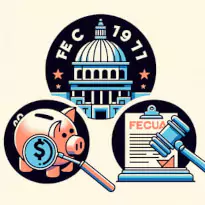
I wanted to thank you for this great read!! I definitely enjoying every little bit of it I have you bookmarked to check out new stuff you post…